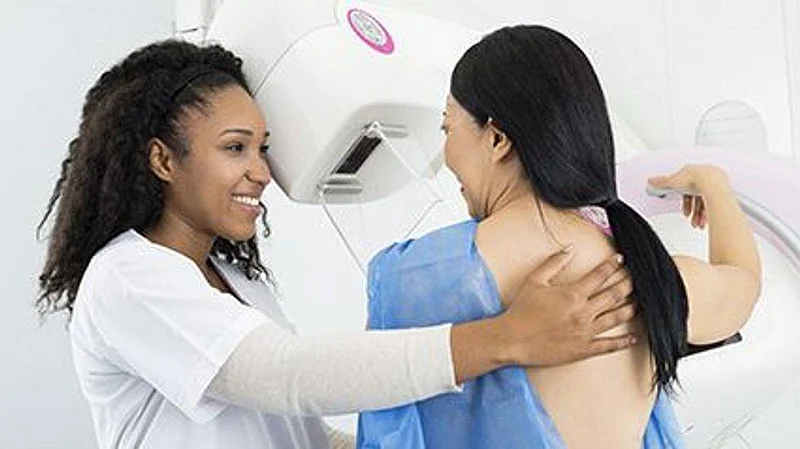Due to a recent change of our website, the process for submitting refill requests online has now changed.
Please click on “Sign Up Today!†to create a new account, and be sure to download our NEW Mobile app!
Thank you for your patience during this transition
Manténgase sano!

- Robert Preidt
- Posted September 3, 2021
AI May Not Be Ready to Accurately Read Mammograms
Radiologists still outperform artificial intelligence (AI) when it comes to breast cancer screening, a new paper shows.
Many countries have mammography screening programs to detect and treat breast cancer early. However, examining mammograms for early signs of cancer means a lot of repetitive work for radiologists, which can result in some cancers being missed, the authors explained.
Previous research has suggested that perhaps AI systems might even outperform people in this task -- and might soon replace radiologists.
But good quality evidence to support the use of AI instead of experienced radiologists is lacking, according to researchers who reviewed 12 studies conducted since 2010.
The latest findings were published Sept. 1 in the BMJ.
"Current evidence on the use of AI systems in breast cancer screening is a long way from having the quality and quantity required for its implementation into clinical practice," wrote Sian Taylor-Phillips and colleagues. Taylor-Phillips is with the University of Warwick's health sciences division in Coventry, U.K.
The studies included nearly 132,000 women screened for breast cancer in Sweden, the United States, Germany, the Netherlands and Spain.
Three large studies involving a total of nearly 80,000 women compared AI systems with the findings of the original radiologist. Of those AI systems, 94% were less accurate than a single radiologist and all were less accurate than the opinions of two or more radiologists, which is the standard practice in Europe.
Five smaller studies involving a total of more than 1,000 women concluded that all of the AI systems they evaluated were more accurate than one radiologist, but the studies had a high risk of bias and their findings were not replicated in larger studies, according to the review.
"Well-designed comparative test accuracy studies, randomized controlled trials, and cohort studies in large screening populations are needed which evaluate commercially available AI systems in combination with radiologists in clinical practice," the authors said in a journal news release.
More information
The U.S. National Cancer Institute has more on breast cancer screening.
SOURCE: BMJ, news release, Sept. 1, 2021
